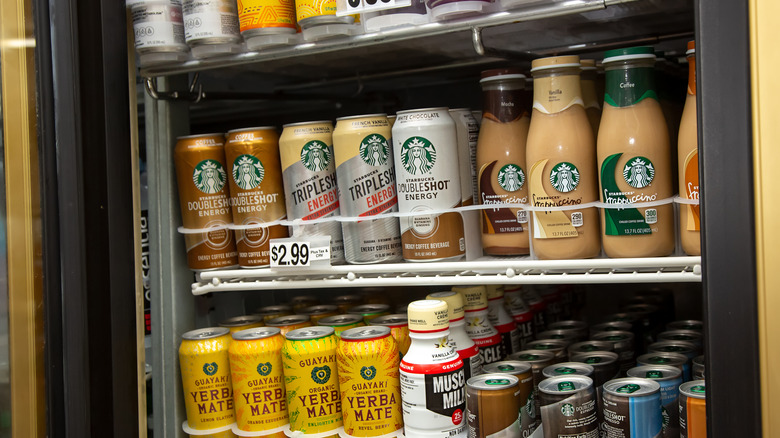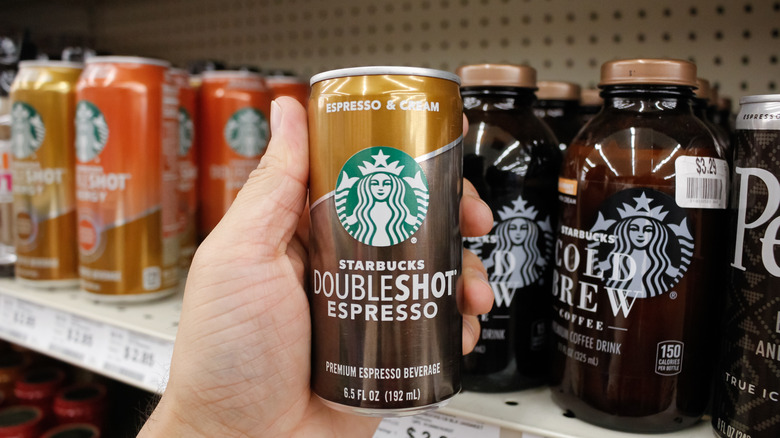Are Starbucks Energy Drinks Bad For You?
At least one-third of teenagers and young adults consume energy drinks on a regular basis, and it is no surprise, as an energy boost may feel necessary after spending much of the previous night studying and doing homework. Being tempting and popular doesn't make it healthy, however. The National Institutes of Health (NIH) warns that having too much caffeine can interfere with your mental health, sleep patterns, and cardiovascular and nervous systems. It may even lead to dehydration and digestive issues. All that sugar doesn't help, either.
Enter Starbucks, America's 43rd most popular dining brand, according to YouGov. For Americans who enjoy coffee, which would be at least two-thirds of us (per National Coffee Association), having an energy drink laced with our favorite coffee flavors sounds like a dream. That is exactly what Starbucks offers, with flavors such as vanilla, mocha, and caramel (via Target), but as noted, being tempting does not necessarily equate to being healthy.
Starbucks energy drinks may contain too much sugar
According to YouGov, nearly half of millennials are fond of Starbucks DoubleShot Energy Coffee. Are these millennials doing a disservice to their own health?
When it comes to energy drinks, the main concern of the NIH is that they have too much sugar and caffeine. For example, the NIH observes that "a single 16-oz. container of an energy drink may contain 54 to 62 grams of added sugar," which is far higher than the recommended amount of sugar for an entire day. Instacart lists the sugar content of a Starbucks Double Shot Energy Coffee Beverage as 29 grams, which may seem low by comparison, but it still exceeds the recommended daily sugar intake for women (24 grams) and approaches that for men (36 grams), according to Harvard T.H. Chan School of Public Health. Harvard warns that having too much sugar can cause weight gain and increase your risk of heart disease.
The NIH is also concerned about the amount of caffeine in energy drinks, as having too much caffeine can cause anxiety, sleep issues, heart rhythm disturbances, and an increase in blood pressure, among other problems. CaffeineInformer notes that a Starbucks Double Shot has 135 mg of caffeine while a Starbucks Triple Shot has 225 mg, the latter of which is labelled as "extreme". Both of these beverages far exceed the caffeine limit recommended for adolescents, according to Johns Hopkins All Children's Hospital. However, Mayo Clinic says that up to 400 mg of caffeine is safe for most adults, so if you are past adolescence, Starbucks energy drinks may not be as much of a concern in terms of caffeine, as long as you stay within the recommended daily limit.


